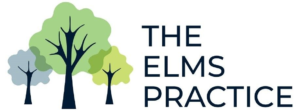Childhood immunisations
Many potentially fatal childhood diseases have been virtually eradicated in the UK due the availability of vaccinations. It is very important that babies and children are fully immunised. Reminders are sent out by the health authority and appointments can be made via our reception. Tetanus infection may develop in wounds picked up in a garden or street. We recommend that everyone has a booster every 10 years.
The practice follows the national policy for childhood immunisation. Further information can be found on the NHS vaccinations page.
Flu
This is carried out on a yearly basis, usually in the autumn. Flu vaccination is safe and effective. It’s offered every year through the NHS to help protect people at risk of getting seriously ill from flu.
The NHS website provides information about who can get it, how to book and where to get the vaccine.
Who can have the flu vaccine?
The flu vaccine is given free on the NHS to adults who:
- are 65 and over
- have certain health conditions
- are pregnant
- are in long-stay residential care
- receive a carer’s allowance, or are the main carer for an older or disabled person who may be at risk if you get sick
- live with someone who is more likely to get a severe infection due to a weakened immune system, such as someone living with HIV, someone who has had a transplant, or is having certain treatments for cancer, lupus or rheumatoid arthritis
- are frontline health workers
- are social care workers who cannot get the vaccine through an occupational health scheme at work.
Find out about flu vaccination for adults
Find out about flu vaccination for children
Pneumonia vaccinations
An effective immunisation now exists for any type of pneumonia and is recommended for patients over the age of 65 or those with certain underlying health conditions. The pneumococcal vaccine protects against serious and potentially fatal pneumococcal infections. One injection is usually enough for life, or in some cases it is given every 5 years. It is especially recommended for those who have had their spleen removed by surgery, have kidney or immune problems or diabetes.
Shingles vaccinations
A vaccine to prevent shingles, a common, painful skin disease, is available on the NHS to people in their 70s.
The shingles vaccine is given as an injection into the upper arm. Unlike the flu vaccine, you’ll only need to have the vaccination once and you can have it at any time of the year.
Most people will only need 1 dose, but some people who cannot have the routine vaccine for health reasons will need 2 doses.
The shingles vaccine is expected to reduce your risk of getting shingles. If you do go on to have the disease, your symptoms may be milder and the illness shorter.
COVID-19
COVID-19 vaccination is safe and effective. It gives you the best protection against COVID-19.
The NHS website provides information about the vaccination, who can get it, and safety and side effects.
Find out about COVID-19 vaccination
